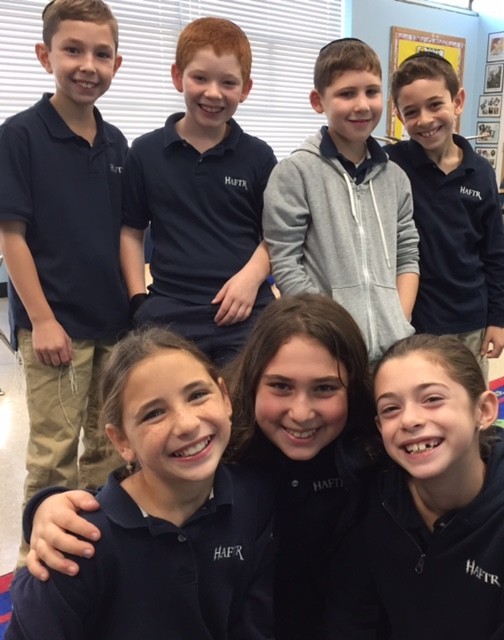Gifted goals at HAFTR elementary
Fifth grade students in the gifted program of the Hebrew Academy of the Five Towns and Rockaway have been partnering with Stony Brook University researchers to track penguin colonies in Antarctica.
The tracking method, called the Mapping Application for Penguin Populations and Projected Dynamics, enables citizen scientists to use Web-based technology and Google Earth to locate guano, the stain left by penguin excrement. Guano is found only in the places where penguins breed, so locating the stains aids in determining the location of penguin populations.
Global climate change is seriously impacting the penguin population in Antarctica. As the ice melts, the penguins’ habitat is threatened, so locating and protecting penguin populations is critical. Dr. Heather Lynch, associate professor of ecology and evolution and the primary investigator on this project (along with Mathew Schwaller of NASA’s Goddard Space Flight Center), developed the tracking program for citizen scientists to help policy-makers with conservation directives aimed at saving Antarctica’s dwindling penguin populations.
Gifted teacher Lisa Rosenberg and Rabbi Baruch Noy of the technology department initiated this project in Rosenberg’s fifth grade gifted program in early November. To date, the students have found two penguin colonies by locating their guano stains by looking at satellite images taken in 2011.
According to Lynch and MAPPPD data webmaster Dr. Grant Humphries, Rosenberg’s students found an emperor penguin colony called Smith, with around 4,000 breeding pairs of penguins. The colony was located 2.3 km from where it was last seen in a 2009 image, indicating that this colony still existed at that point in time. Additionally, Rosenberg’s students uncovered another penguin emperor colony called Smyley, which had 6,061 nests at last count in 2009. Lynch and Humphries plan to use this data to convince NASA to task some satellite time to investigate these colonies in the near future.
This project is perfect for her gifted class, Rosenberg says.
“The kids are completely engaged. They understand the importance of protecting various species from global climate change and its effect on the penguins’ habitat and ecosystem. The use of technology only fuels the students’ excitement as well as the ‘gross factor’ of locating the penguins’ guano (poop) stains.”
Rosenberg and her students look forward to continuing the hunt for penguin colonies and aiding in the research needed to developing the global solution.

 43.0°,
A Few Clouds
43.0°,
A Few Clouds 




